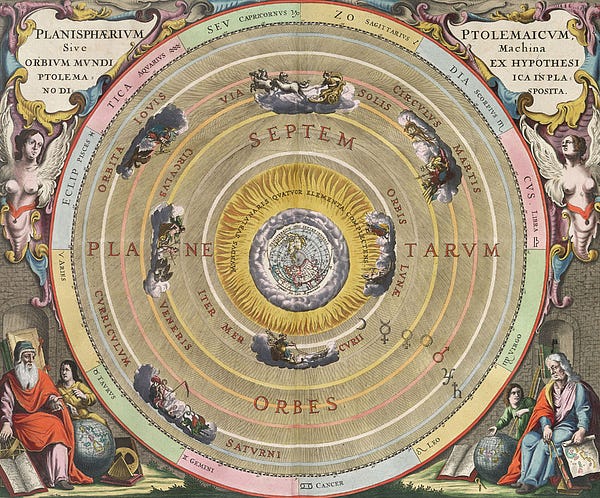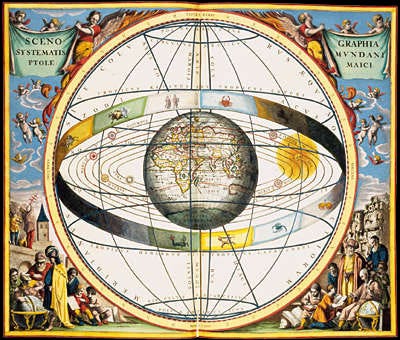The Real Education They Took From You
The 7 Disciplines that Form Your Soul
Modernity has destroyed our civilization’s understanding of education. Today, the philosophy of public education has been reduced to careerism — you must attend school to get a job and make money.
I cannot overstate how devastating this philosophy is, and how much it’s deprived modern man of a true liberal arts education that can transform your mind, body, and soul to live a glorious life.
But what does that education look like?
Traditionally, a true liberal arts education was built on seven disciplines. Each discipline built off the other, and created a systematic tract to shape your soul into a harmonious union with the Truth, Beauty, and Goodness that permeates all reality.
Once you understand these disciplines, and master them, your education will shape your soul to live well and discover your life’s destiny…
Reminder:
Join me on Dec 10 for a live discussion where we’ll explore how to recover the education modernity stole from us.
Seats are limited — reserve your spot now and start rebuilding your intellectual foundation:
The Trivium — Learning to Think and Speak
The first three disciplines of liberal arts education are called the trivium. They consist of grammar, logic, and rhetoric respectively. The trivium has one underlying purpose:
To train the mind to think and speak properly.
It begins with grammar.
Grammar
Traditionally, grammar was NOT just about spelling and punctuation. Instead, grammar explained how language itself carries meaning, and how ideas are built and structured. It trains the mind to notice patterns, distinctions, and nuances in communication.
For instance, consider the sentences:
“Let’s eat, Grandma.”
“Let’s eat Grandma.”
One comma changes the sentence’s entire meaning.
So it’s not just about arbitrary rules to write well, rather it’s to train your mind to think systematically and use language to express meaning with precision. Naturally, this skill leads into the next discipline.
Logic
Logic is the discipline of reasoning itself. Grammar gives you the tools to form sentences, but logic teaches you how to analyze those sentences up against truth. You learn the process of composing sound arguments and discerning fallacious ones, and the goal is to rationally deduce sound knowledge that can be trusted.
Consider, for instance, this famous syllogism:
Premise 1: All humans are mortal.
Premise 2: Socrates is a human.
Conclusion: Therefore, Socrates is mortal.
Ultimately, logic is the bridge between knowing words and knowing ideas, to discover truth.
At this point, you’ve learned to think and speak, and are now ready for the third discipline.
Rhetoric
Rhetoric is the art of persuasion and expression. It teaches you how to express your ideas effectively.
Speaking truthfully alone isn’t enough to win a debate or garner support for your cause. There is an art to persuasion that must be mastered if you want to move the minds and souls of your loved ones to accept Truth.
This is the discipline that changed destinies in the ancient world. Greco-Roman antiquity saw the rise and fall of civilizations, spurred on largely by the rhetorical excellence of magnanimous statesmen.
This wisdom still rings true to this day — if you want to make a mark in this world, you must learn to communicate effectively. You must learn the art of rhetoric.
With this third discipline in line, you’re now prepared for advanced education in the liberal arts.
The Quadrivium – Learning the Patterns of Reality
The quadrivium is studied after the trivium. It consists of Arithmetic, Geometry, Music, and Astronomy. Unlike the trivium, which is about how we think and communicate, the quadrivium is about how the universe itself is ordered.
It teaches your mind to see patterns, relationships, and harmony everywhere. Most important — it trains you to see your relationship to that reality (more on this later).
Arithmetic
Arithmetic is the study of numbers and quantity (addition, subtraction, fractions, etc.)
But why should we understand mathematics in the first place (beyond the practical utility of getting a job)?
Well, a deeply mathematical mindset helps you understand abstract thinking, reasoning, and basic pattern recognition. This pattern recognition acts as a ladder to greater heights of the intellect.
Geometry
Geometry comes next. Building off our arithmetic skills, geometry investigates shapes, space, and the relationships between points, lines, and surfaces.
This teaches you logical deduction and visual reasoning, or understanding how parts relate to a whole.
For example, Pythagoras’ theorem (a squared + b squared = c squared) isn’t just an abstract formula, but a means of discerning order in space.
Through geometry, you understand that the material world is ordered, with concrete manifestations of harmony underlying these mathematical equations. You now can perceive structure in everything — architecture, ethics, business systems — because order in space mirrors order in thought and the cosmos.
Soon enough, you start to see an underlying beauty in these patterns. You’re now ready for the next discipline.
Music
Music is the next discipline of the quadrivium. It’s not just about playing instruments and making beautiful sounds, but ultimately understanding proportion, harmony, and mathematical relationships in sound itself.
Consider the classical idea of the musical scale: the octave, fifth, and fourth are all ratios (2:1, 3:2, 4:3).
A discernment of these patterns helps you understand not just pattern recognition of reality, but also how beauty is interwoven into the fabric of existence itself.
Music teaches that the universe has rhythm and proportion, and that certain patterns create harmony, others discord. Implicitly, you recognize which patterns are harmonious in reality, and which patterns cause discord.
This goes beyond music, and can inform your moral life. You recognize life is about discerning a harmonious relationship of reality via pattern recognition of truths that underlie its substructure.
In other words — act good so that you can be in harmony with the goodness underlying the cosmos.
Speaking of which, the cosmos is the final discipline.
Astronomy
Astronomy studies the movements and patterns of celestial bodies. Discerning the patterns of the cosmos reinforces the idea that reality is governed by a law and order that points to a higher mode of being, and perhaps a greater transcendental reality.
The study of the heavens cultivates awe, curiosity, and a sense of proportion. You begin to recognize that education itself is an embodied experience:
You have a soul that partakes in a relationship with the cosmos. The same beauty in space rings true in your soul. You share an intimate relationship with a greater whole, and discover that there is a unified beauty hidden behind all of Being itself.
And finally, now that you’ve completed the seven disciplines of liberal arts, you’re ready for the education that reveals the unity and beauty behind all of Being…









